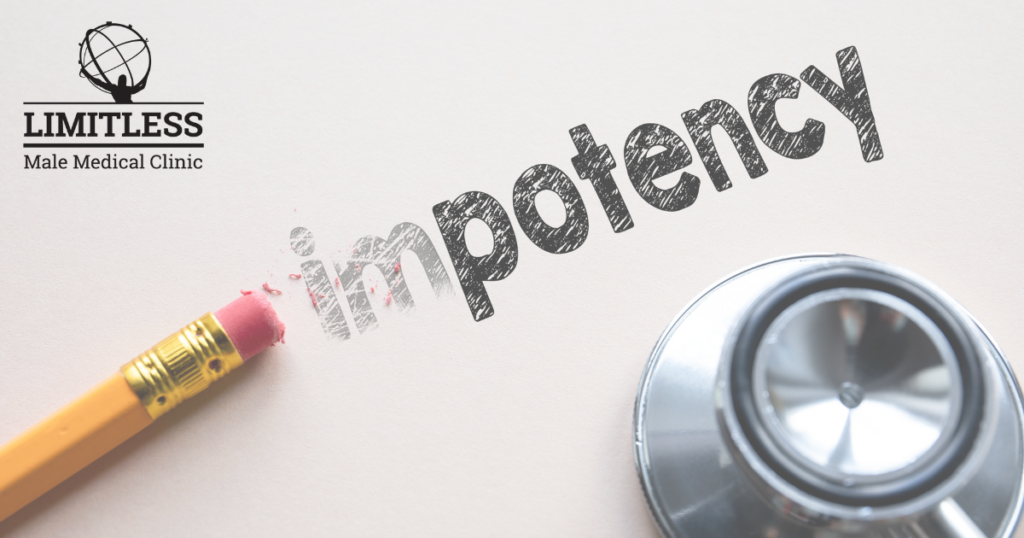November is National Impotency Awareness Month, and we want to talk about a topic that is often considered taboo: erectile dysfunction (ED). This is an issue that affects many men, yet they are often too embarrassed to seek help. The purpose of bringing awareness to ED is to get rid of the stigma and encourage men to seek medical help. Don’t let embarrassment be the reason that you don’t seek the treatment you need! In this blog post, we will discuss some of the causes of impotence, how you can prevent it, and treatments available.
First, let’s review the causes of impotence. There are various factors at play including age, physical and psychological factors:
Age
It’s estimated that by the time you reach your 40’s, there’s about a 40% chance of having some form ED- which increases 10% each decade thereafter.
Physical Factors
The most common cause of ED is poor blood flow. This can be due to various reasons such as untreated hypertension, elevated glucose levels (diabetes), smoking, obesity, and untreated high cholesterol.
Men with Peyronie’s disease may experience curved, painful erections that may prevent them from having sex or making it difficult to get an erection. They also might experience stress and anxiety as well as penile shortening (another common concern).
Low testosterone levels can be associated with ED. This can also lead to weight gain, reduced libido, irritability, and fatigue. All which reduce sexual performance.
Neurologic causes
If a man has diabetes, multiple sclerosis, or spinal cord injury it can cause nerve damage that will affect the ability to maintain an erection. Nerves are susceptible during times when they’re being stressed by things like surgery and trauma which might be why some men experience ED after major health events.
Other physical factors may include
- Diabetes
- Hypertension
- Stroke
- Atherosclerosis
- Radiation therapy to the testicles
- Parkinson’s Disease
Psychological Factors
Mental health and physical well-being are not two separate entities. They’re constantly linked to each other. This can create a cycle where you feel worse about your sexual problems if they don’t resolve the issue of depression or stress beforehand because it will just leave you feeling more guilt ridden than ever with no end in sight.
When should you see your doctor? If you have been experiencing ED for more than a few weeks, it’s important to see a doctor. They will be able to determine the underlying cause and provide proper treatment. Some men experience impotence as a result of diabetes, heart disease, low testosterone, and other known health conditions. If you’re experiencing this problem, contact your doctor for help.
Next, let’s address how to prevent ED. Maintaining a healthy lifestyle by exercising regularly and eating a balanced diet can lower the risk of developing ED. Quitting smoking and limiting alcohol consumption can also help.
Diet
When blood flow is needed for an erection, foods that are heart-healthy can help prevent impotence. Studies have shown Mediterranean diets including fruits vegetables and whole grains reduce the risk of erectile dysfunction in men who eat them regularly.
Exercise
The importance of maintaining a healthy weight and aerobic exercise cannot be overstated to avoid ED. Sedentary lifestyles are strongly linked with impotence, so being more active will help you feel your best!
Quit Smoking
It is no secret that smoking has been linked with ED. Men who smoke are at double the risk for developing this condition, which can be attributed in part because it restricts blood flow throughout your entire body including down there!
At Limitless Male, we offer several options for treating impotence. These include testosterone replacement therapy (TRT), shockwave therapy, and platelet-rich plasma therapy. Don’t let ED control your life – schedule a consultation with a provider today and take back your confidence!




